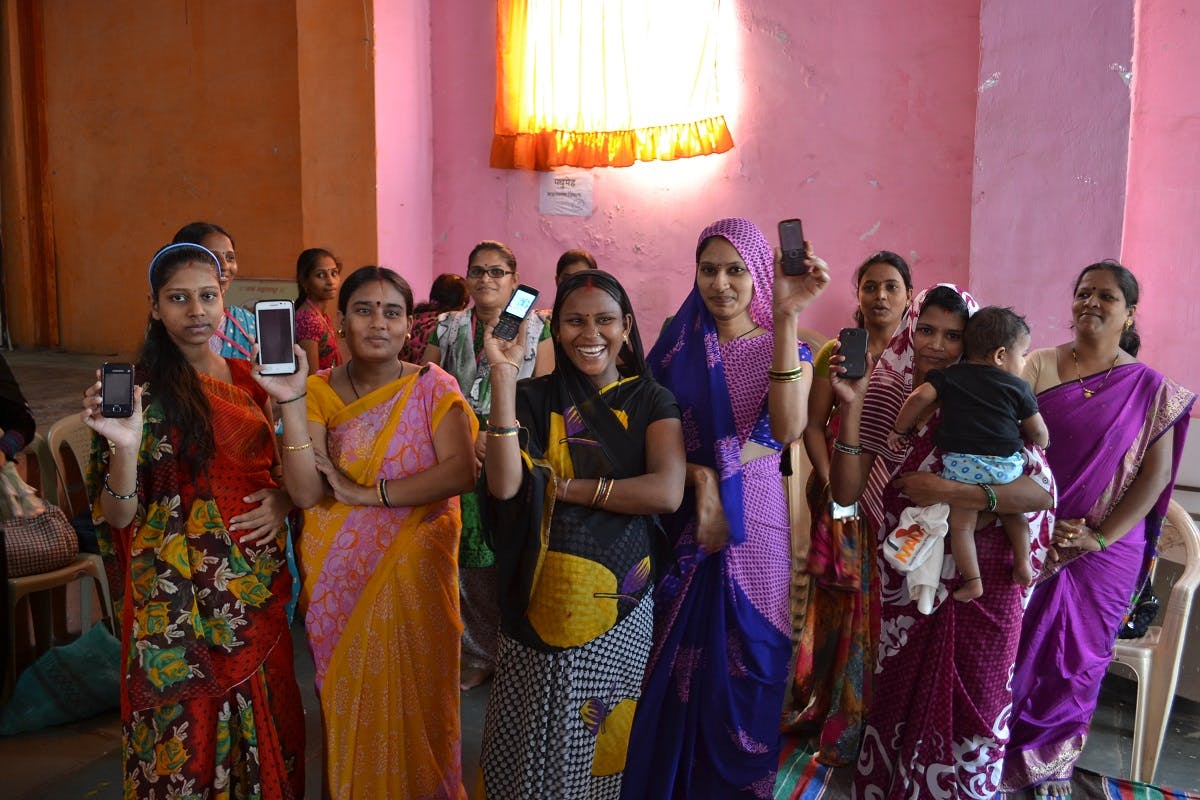Editor’s Note: This post is part of a special series in honor of International Women’s Day. Right now, the United Nations Foundation blog features posts on the world we picture for girls and women and the issues we need to address to advance women’s equality and empowerment. Share what you picture for girls and women on Twitter with the hashtag #PictureIt.
Many of us have made the statement, at one point, that we couldn’t live without our cell phones. For those of us who are professional, single moms, that happens to be especially true; when facing the demands of our job, our mobile phones are sometimes the only way to keep it all together – to make sure every arrangement for our child is made and every bill is paid.
For women in the developing world, however, a mobile phone can literally mean a shot at a better life. It can mean a chance at better health care, through life-saving information sent to the palm of her hand. Through the work of organizations like the Mobile Alliance for Maternal Action, MAMA, we know the power of mobile phones to improve the health of vulnerable expecting mothers and their newborn children. We know that information vital to their child’s health, that they may have gone without, can get directly to them, at exactly the time they need it. We often forget that before smartphones and internet access were ubiquitous, we relied on our village – mothers, sisters, friends – for answers to our questions about how to best take care of our new babies; just like our sisters in the developing world. But we weren’t always getting the best available information, and we certainly couldn’t get instant access to it in the palm of our hand.
The good news is that many women in the developing world are getting more and greater access to the internet and mobile technologies, and therefore, to information that can improve the health and well-being of themselves, and their families. Organizations like MAMA and Lopez Family Foundation (LFF) can help them do that. Through MAMA’s timed and targeted information, sent directly to their cell phone, women in other parts of the world can develop a better understanding of the empowering force they can provide, that will improve not only the health of their families, but improve their lives in other ways. Through the Lopez Family Foundation’s promotion of Telemedicine, women, children, and medical professionals in the most remote areas can have access to the latest medical advancements.
Women have come a long way in the developing world, but significant gaps remain. Our dream for the International Women’s Day goal of gender equality is that the use of mobile and related technologies will give every mom the support she needs for a healthy family, improving the lives of women and girls. We believe it will go a long way in helping us close the gaps. Join us in our mission to bring gender equality to all, by sharing your dream for women. Tweet using the hashtag #PictureIt, #IWD2015 (International Women’s Day), and #EWEC (Every Woman, Every Child), and let us know your vision for women around the world.
*Lynda Lopez is an award-winning journalist and co-founder of the Lopez Family Foundation. Kirsten Gagnaire is the Executive Director of Mobile Alliance for Maternal Action, or MAMA. Both organizations leverage advanced technologies to improve the health and lives of women and their families.
Editor’s Note: This post was updated on March 11, 2015.



 View All Blog Posts
View All Blog Posts